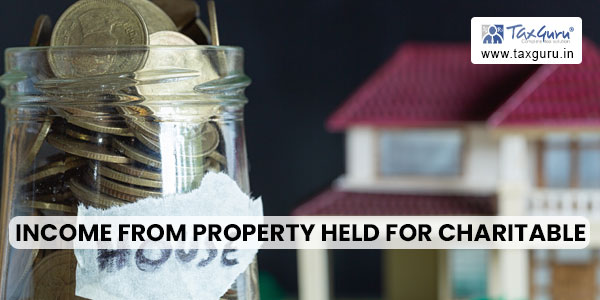Introduction
The Income Tax Act is a crucial legislation that governs the taxation of income in various jurisdictions. One of the important sections of the Act is Section 11, which deals with the taxation of income from property held for charitable or religious purposes. This article aims to provide a detailed analysis of Section 11, including its provisions, scope, exclusions, and implications.
Overview of Section 11
Section 11 of the Income Tax Act deals with the tax treatment of income derived from immovable property held by charitable or religious organizations. It grants exemptions to such entities, subject to certain conditions and limitations. The primary objective of this provision is to encourage and support philanthropic activities, religious endeavors, and public welfare initiatives.
Applicability of Section 11
Section 11 applies to income derived by any trust, society, or institution recognized as a charitable or religious organization under the provisions of the Act. To avail the benefits of this section, the entity must primarily exist for charitable or religious purposes. Additionally, it should be registered and operate in compliance with the relevant laws and regulations.
Definition of Charitable or Religious Purposes
The definition of charitable or religious purposes is crucial to determine the applicability of Section 11. The Act provides an inclusive list of activities that fall within the ambit of charitable purposes, which includes relief of the poor, education, medical relief, advancement of any other objects of general public utility, etc. Religious purposes typically involve the promotion and propagation of a specific faith or belief system.
Exemptions under Section 11
Section 11 grants exemptions to income derived from property held for charitable or religious purposes. However, not all income is exempted unconditionally. The Act categorizes income under two heads: income applied for charitable or religious purposes and income accumulated or set apart for such purposes.

Income Applied for Charitable or Religious Purposes
Income that is directly utilized for the stated objectives of the organization is wholly exempted from income taxation. This includes income generated from renting out property, donations, contributions, investments, etc., as long as it is applied for charitable or religious purposes within the financial year. The exemption is crucial in facilitating the efficient functioning and sustainability of charitable and religious organizations.
Accumulated or Set Apart Income
Section 11 provides partial exemptions for the income accumulated or set apart for future utilization. Such income is subject to certain conditions and limitations, primarily aimed at ensuring efficient utilization and accountability. The Act specifies a maximum permissible limit for accumulation of income, which varies based on the nature of the entity and its activities.
Conditions and Restrictions
To avail the exemptions under Section 11, certain conditions and restrictions need to be adhered to by the charitable or religious organization. The Act mandates the maintenance of separate books of accounts, prescribed auditing requirements, and filing of annual returns. Non-compliance with these conditions may result in the loss of exemption status under Section 11.
Implications and Challenges
While Section 11 provides favorable exemptions to charitable and religious organizations, it also presents challenges in terms of its interpretation and enforcement. The determination of what constitutes genuine charitable activities, application of income within reasonable limits, and prevention of misuse or diversion of funds are some of the challenges faced by tax authorities.
Conclusion
Section 11 of the Income Tax Act is a significant provision that seeks to encourage and support charitable and religious activities. It exempts income derived from property held for charitable or religious purposes, subject to certain conditions and limitations. By providing these incentives, the government aims to foster philanthropic endeavors and ensure the efficient utilization of resources towards public welfare and religious propagation. However, it is vital to strike a balance between providing exemptions and ensuring proper accountability to prevent misuse or misappropriation of funds.
(Author can be reached at email address casharma.sharad2000@gmail.com or on Mobile No. 9990365673)
Disclaimer: “Neither this article nor the information contained herein shall in any way be construed as forming a contract or shall constitute professional advice required before acting upon any matter. CA Sharad Kumar Sharma has taken all due care in the preparation of this article for accuracy in its contents at the time of publication. However, no liability shall be accepted by him in the event of any direct, indirect or consequential damages arising out of or in any way connected with the use of this article or its contents. “






Why no mention about gross or net income for section 11